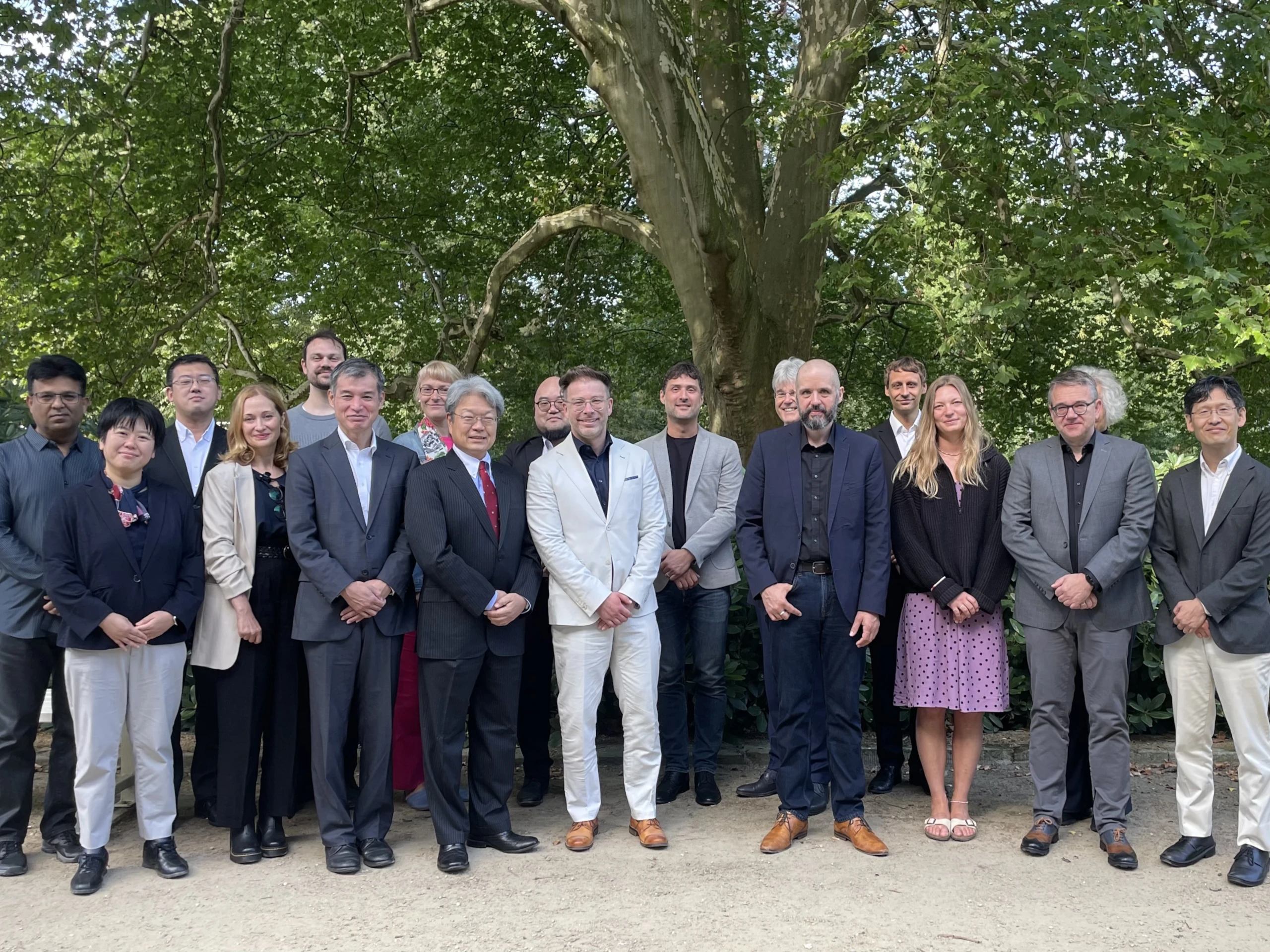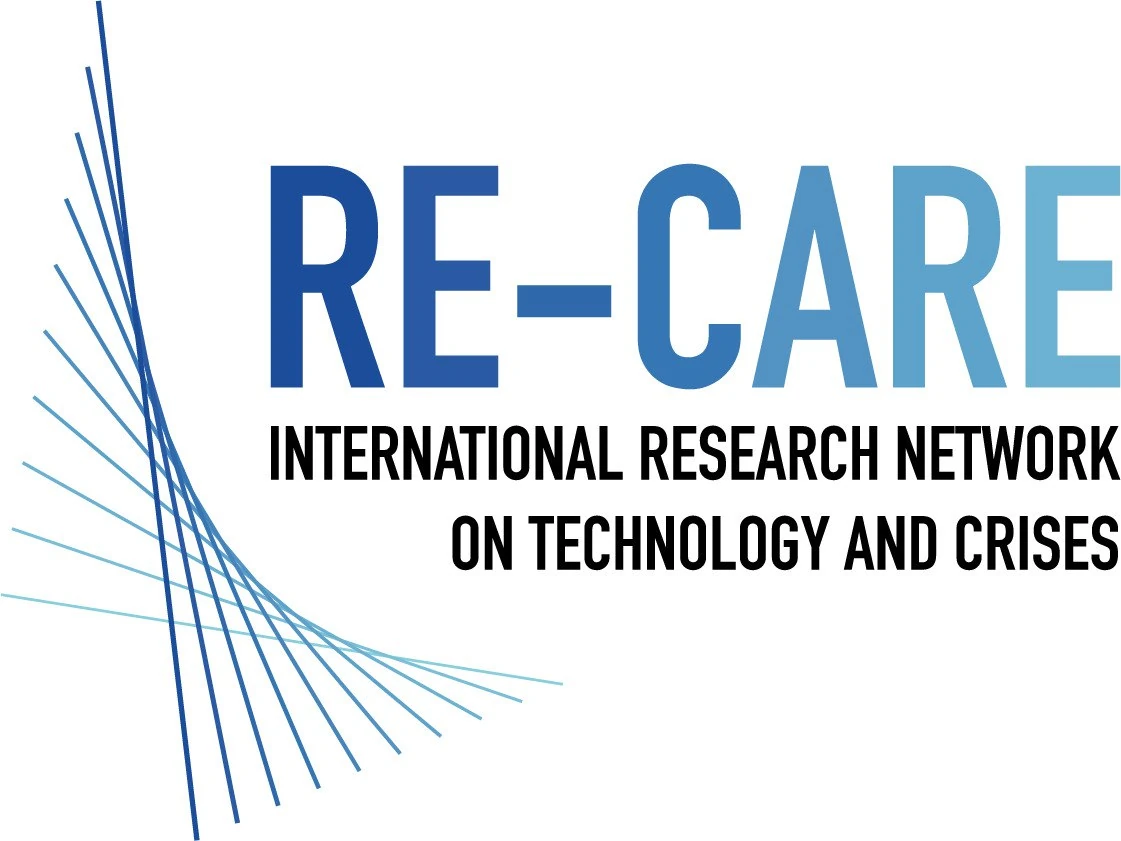“Crises and Resilience”
#2 RE-CARE Conference at Münster University, August 2025

September 2, 2025
Markus Bohlmann, Dennis Krämer
From 25–26 August 2025, the RE-CARE network met at the Senate Hall of Münster Castle for its second conference to shift perspectives on crises toward the future.
Opening
In their opening remarks, Vice-Rector of the University of Münster Michael Quante, Dean of the Faculty of Education and Social Sciences Thorsten Quandt and RE-CARE founder Dennis Krämer emphasized that socities in Japan and Germany are currently experiencing a situation of multiple crises—war, democratic crises, earthquakes, demographic as well as ecological challenges.
Governance Approaches in Japan and Germany
Drawing comparisons, Akemi Yokota noted that in Japan, crisis response often relies on gyōsei shidō (行政指導; administrative guidance) and kōhyō (公表; public announcements), whereas Germany tends to act through formal laws and decrees. Historically, Japan has lacked certain intelligence service structures, which—as Ken Ogata emphasized—complicates efforts to build institutional linkages for cybersecurity. Extending this point, Ogata argued that cyberspace—through the accelerating internationalization, specialization, and facilitation of crime—has become a battlefield capable of undermining national and societal stability, turning cyber resilience into a critical public issue. From a health-governance perspective, Takanori Fujita examined local health data sharing, personal health records (PHRs), and data portability. Evaluating policy responses to pandemics and disasters, Fujita compared these frameworks with the EU’s European Health Data Space (EHDS) and proposed adaptive reforms to strengthen system-wide resilience.
Crises in Sport
Stephanie Brünemann analyzed performance crises—from individual athletes and teams to clubs and even entire sporting cultures. Drawing on Michèle Lamont’s concept of boundary-making, Dennis Krämer argued that sports organisations are caught in a classification crisis as they struggle to regulate the participation of gender-diverse athletes while upholding the principle of gender equality.
Technology and Trust in Crises
Several talks examined technologies for predicting and planning for crises and catastrophic events. In her keynote, Gesa Lindemann asked when technologies themselves become part of the problem and where even recursive technological development reaches its limits. Adopting a postphenomenological perspective, Markus Bohlmann cautioned against distinguishing between good lifeworld technologies and culturally distorted ones; instead, crisis is mediated through technologies—“technologies of crisis”—which shape both our cultural awareness and our sensory attention. Drawing on the ancient figure of Cassandra, Joschka Haltaufderheide discussed crisis and disaster prediction—from disease outbreak detection using patient data, public health information, and social media to models for natural hazards. In Tuesday’s keynote, Susanne Bruksch explained the Japanese concepts of anzen (安全; scientifically demonstrated safety) and anshin (安心; reassurance, trust), which underpin the adoption of medical technologies in Japan. Annie Kurz posed a normative question to the audience: in times of multiple crises involving technology, can we trust ourselves to technologies and how do we do so? Hironori Matsuzaki presented simulations of robot applications across target (inter-)action sequences, highlighting how such tools can support decision-making in crisis situations.
Ethics of Adaptation
Satoshi Kodama emphasized the importance of bōsai (防災; disaster prevention) and gensai (減災; disaster mitigation). A particularly compelling moment came when Shigeto Yonemura shared his personal experience of the Ishikawa earthquake. How should a city be rebuilt after a disaster—and what legal constraints are justified? The discussion considered whether it is ethically troubling when current residents learn that, post-earthquake, their home will be replaced by, for example, an office complex. Turning to health and care, Yukio Sakurai’s online talk explored “Crisis, Culture, and the Family”, tracing how East Asian models of end-of-life decision-making can generate both resilience and vulnerability in moments of strain. Malina Spieker and Christian Fischer analyzed “Sensitivity and Social Influence in the Climate Crisis”, mapping the resilience potential of young people as they oscillate between vulnerability and engagement.
Rethinking Resilience
The closing panel examined the concept of resilience itself. Azher Hameed Qamar and Gabriel Bartl asked whether resilience could be a problematic construct, particularly from minority perspectives: Are the “resilient” simply those subjected to undue hardship? Bartl also argued that the redundancy often required for resilience sits uneasily with the sufficiency principles of sustainability discourse—leaving the concepts in tension. Yoshinori Nakata examined how healthcare productivity in Japan weathered the COVID-19 pandemic, identifying mechanisms of operational resilience under prolonged stress. Davide Viero presented a study mapping “Trends in Long-Term Care Systems’ Inclusiveness and Benefits”, showing how design choices in care regimes shape who is protected and who is left out.
What’s Next
The RE-CARE Network will build on these insights. A follow-up conference is currently planned for spring 2027. Further information will follow soon.
The conference programme is available for download here.

This project is funded by the German Research Foundation (DFG).
The information contained on this website does not necessarily reflect the official position of the DFG.
